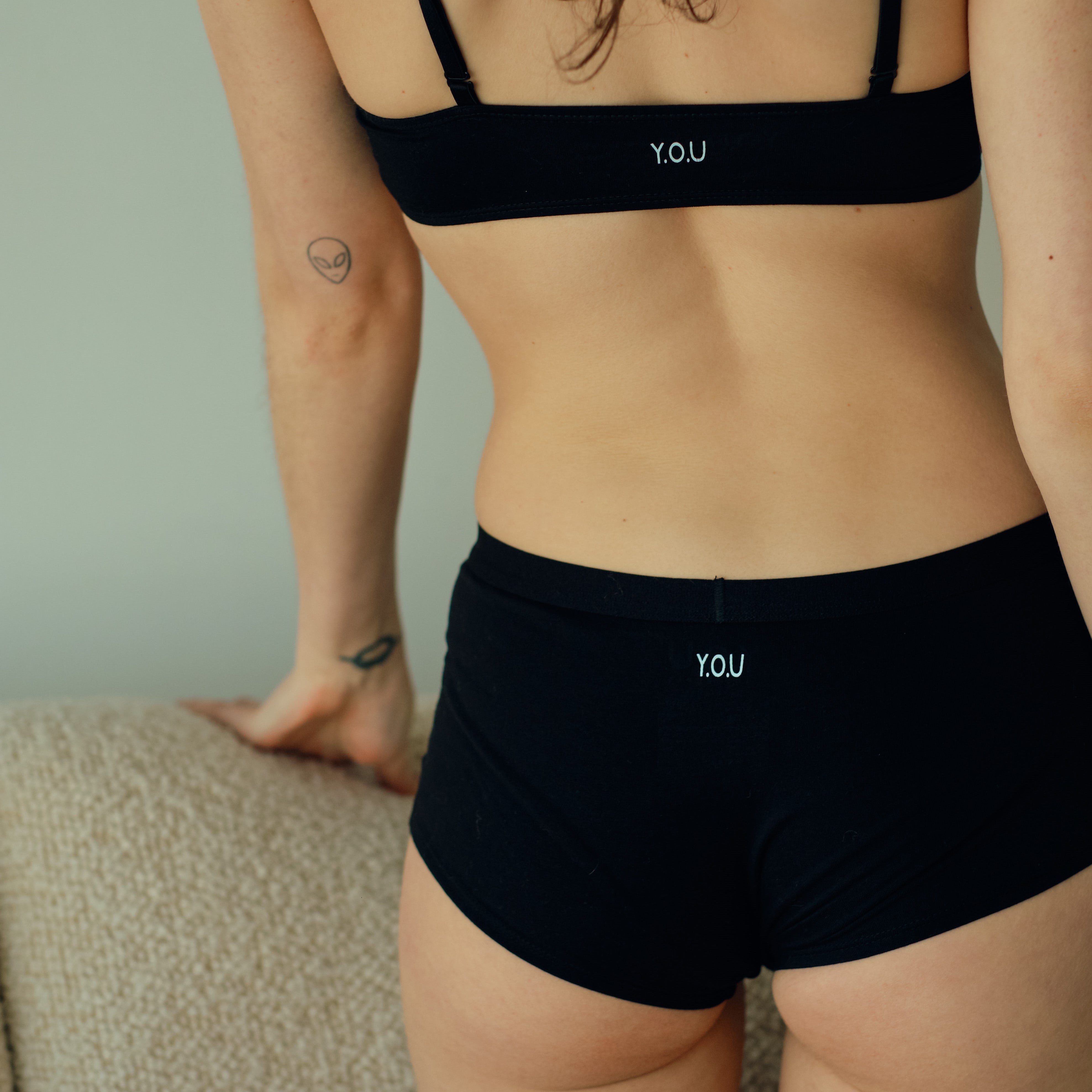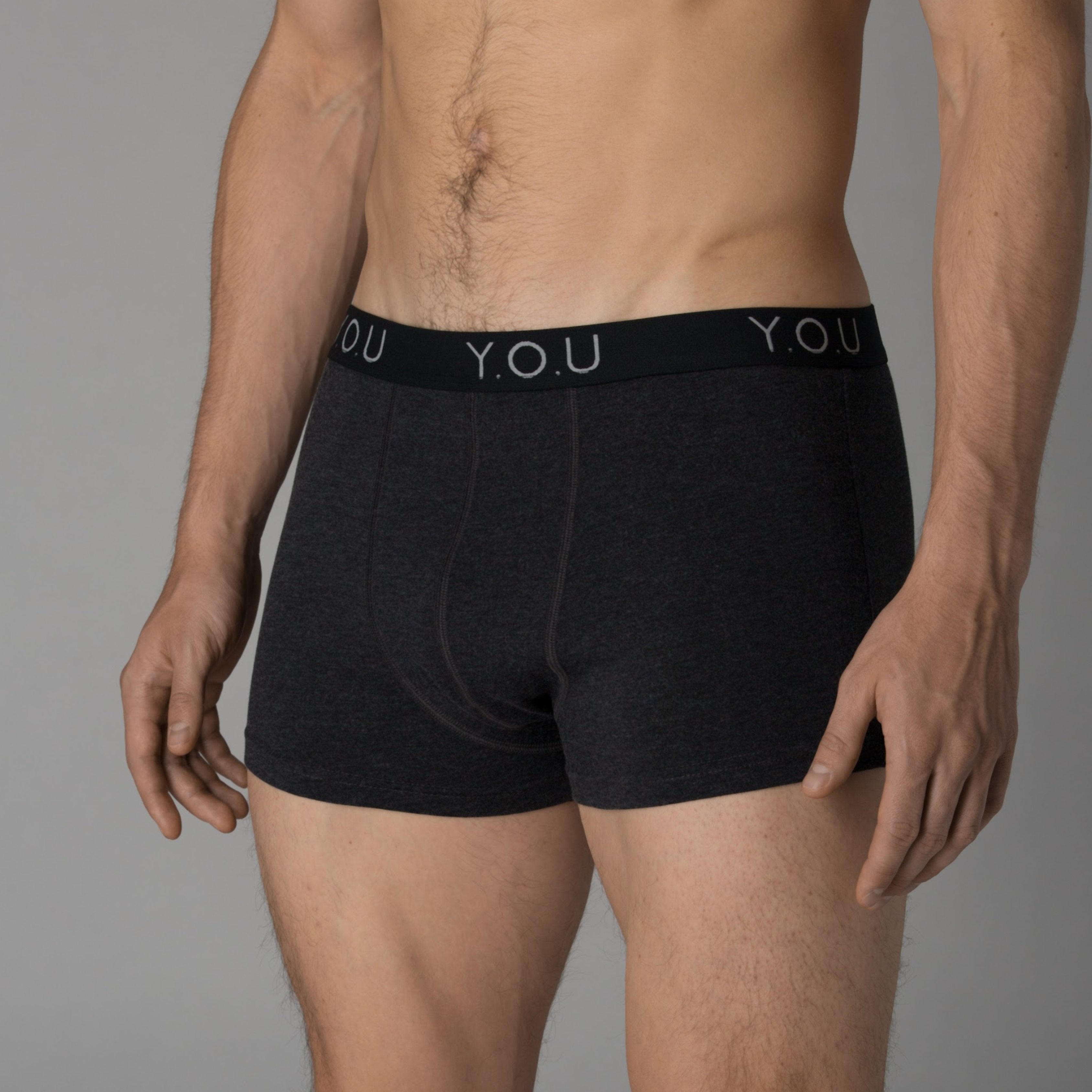
Your Thong Questions Answered

Thongs are like marmite: some people swear by them, others firmly avoid them. We know underwear is a matter of personal preference, but it’s just as important to make informed purchases. We’re answering some of the most commonly searched questions about thongs (and dispelling any myths!) to help you make up your mind.
Ultimately, the best way to decide is to try a pair for yourself, and here’s 5 reasons to to give thongs a go. Now onto the questions!
Are thongs comfortable to wear?
It depends. For many people, thongs are especially comfortable because they’re lightweight, discrete and sleek. Thanks to their minimal design, thongs are much less likely to bunch up and move around during daily activities.
Thongs become less comfortable if they’re made from itchy fabrics that don’t provide enough coverage. Skimpy lace g-strings may be great for the bedroom, but they’re not designed for hours of wear.
Can I wear thongs everyday?

Absolutely! Thongs are a great everyday choice, because they can be worn under anything without giving a Visible Panty Line (VPL). Tight fitting thongs that require constant readjustment are a no-go. Our organic cotton thongs provide a good amount of coverage while maintaining a distinctive sleekness.
Are thongs bad for your health?
There’s a misconception that thongs are unhygienic and cause intimate infections. A 2018 study found no evidence that thongs cause urinary tract infections (UTIs), bacterial vaginosis (BV) or vaginal yeast infections (YV).
Research has shown that likelihood of infection is not determined by the style of underwear, but is closely linked to the fabric composition. Synthetic materials, such as polyester and nylon, are more likely to cause skin irritations and rashes. Cotton is the healthier choice because it's breathable and gentler on the skin. Cotton is also absorbent, allowing the evaporation of excess moisture that can otherwise encourage the growth of bacteria. In their vulval skin care guide, the NHS recommend always wearing loose cotton underwear.
Organic cotton thongs are even better! Because organic cotton is grown without the use of harsh chemicals, the final fibres are much longer and softer, which is great for sensitive skin. Other than the fact that it’s much better for you, organic cotton is also much kinder to the planet
What makes Y.O.U thongs so great?

We’re glad you asked! Our low-rise thongs are ethically produced, made from super soft organic cotton, and make a difference to someone in need. Made by India’s leading sustainable manufacturer, our thongs are made from Fairtrade, GOTS Certified organic cotton which is PETA-Approved Vegan. This ensures that cotton farmers are paid a premium market rate and that the cotton is grown without polluting pesticides that are harmful to local wildlife, farmers’ health and our bodies.
If that wasn’t enough,we have a buy-one-give-two partnership with the charity Smalls for All. For every thong you buy, we’ll donate two pairs of underwear to vulnerable women and children in Africa and the UK, with the overall goal of helping to improve access to education and employment.
Still not convinced? We also sell bikinis and boy shorts which are just as comfortable and sustainable. Available in sizes 6-22 across 5 classic colours and 5 vibrant prints, there really is something for everyone!
If you found this post helpful, check out our other underwear guides:
- How to Choose the Right Underwear Style for You
- Bra vs Bralette: What is a Bralette and Why Should you Wear One?
- How to Work out your Bralette Size
Written by Melissa Watt















Leave a comment
This site is protected by hCaptcha and the hCaptcha Privacy Policy and Terms of Service apply.